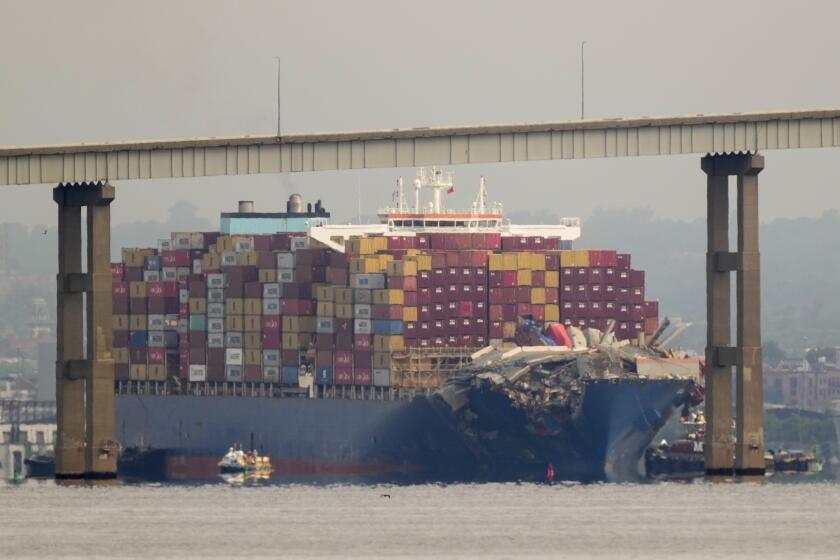Terrorists, Tourists and New Refugees
There are terrorists and there are refugees and sometimes there are terrorist refugees. And then there are the absent American tourists. In more than a decade of dealing with the threat and actuality of terrorism, the nations of Western Europe are still discovering new domestic and international consequences.
At times it seems that terrorist acts and their victims are forgotten in wide-ranging debates about civil liberties, national rights and international responsibilities. The booming anti-terrorism business, ranging from such arcane skills as “risk assessment” for multinational executives to selling explosives detectors, only adds fuel to the flames as the consultants and salesmen seize on every incident to enhance the value of their wares.
France, West Germany and Spain find themselves on the front lines, but this is a battlefield of constantly shifting terrain. In the late summer-vacation pause before the serious business of September, domestic politics has had as much to do with the debate as the real risk to citizens.
This month has been France’s turn for trouble. Following four attacks in Paris by the domestic group Action Directe, including a bombing of an anti-terrorism headquarters that left one senior officer dead and 22 others wounded, the new conservative government of Prime Minister Jacques Chirac is having to answer critics. One of the right’s constant themes in its defeat of the Socialists in the March elections was that a conservative government would be firmer with terrorists than the Socialists.
Chirac’s administration showed some firmness this week, deporting two suspected Basque terrorists to Spain. The Basque-speaking part of France has long been a haven for terrorists from Spain, protected by France’s tradition of political asylum. More than 25 Basque activists had been expelled in the past few years, but always to a third country in Africa or Latin America. The two deported this week were the first sent back to Spain.
The left immediately jumped on the deportations as illegal, calling them “disguised extraditions,” though neither suspect had been charged with a crime. Indeed one of them was in the process of seeking refugee status and thus, under the law, should not have been sent back to the country he came from.
But West Germany faces a far graver refugee problem. Friedrich Zimmermann, the interior minister, said this week that the federal republic had already processed 42,000 refugees in the first six months of 1986, compared with 74,000 in all of 1985. Of the total, 21% were Lebanese or Palestinian, 18% Iranian, 10% Turks and 9% Poles.
About half of West Germany’s refugees had been flown to East Berlin by the state airlines of East Germany and the Soviet Union, both grateful for the business. Refugees then crossed into West Berlin to seek asylum. Zimmermann said that talks with East Germany and the Soviet Union to curb the traffic had been unproductive.
The interior minister claimed that the influx of refugees posed a threat to law and order, an annual expense of $1.3 billion to house them and not incidentally a “very great concern about a potential but incalculable terrorist threat.” There are already indications that refugees will be a major issue in next January’s general elections.
For France, one of the thorniest of recent terrorism cases involves Georges Ibrahim Abdullah, the presumed leader of the violent Lebanese Armed Revolutionary Faction. Since Abdullah’s arrest in Lyons two years ago--after a cooperative effort involving Italian, Spanish and French police--the man has become a central figure in a number of difficult debates. His group is believed to be responsible for the deaths of two American diplomats and one Israeli diplomat in France since 1981, as well as the deaths of two bomb disposal experts trying to defuse an American diplomat’s automobile in Paris.
After a trial in Lyons earlier this month, Abdullah was sentenced to four years in prison for carrying false passports and associating with criminals. He is also under indictment in Paris in connection with the murders of diplomats; that trial is still in the preliminary stages.
The U.S. Embassy in France protested the lightness of Abdullah’s sentence. The French Foreign Ministry rejected the protest as unwarranted interference in the republic’s internal affairs. Then the office of Robert B. Oakley, U.S. State Department expert on terrorism, leaked a report in Washington that predicted a rise of terrorism in Europe directed at tourists.
Some French experts found nothing new in Oakley’s report and thought there must be rancor behind it. An obvious conclusion was that it was meant as a signal to the French, already suffering at least a 25% drop in American tourism this summer, about further handling of the Abdullah case.
Whatever, Chirac’s government has served notice: It intends to pursue tougher policies by fall. The opposition is lining up for battle; and the press, threatened by curbs in reporting terrorism, watches nervously. Terrorism may have become a fact of life; that doesn’t make it easier to live with.
More to Read
Start your day right
Sign up for Essential California for news, features and recommendations from the L.A. Times and beyond in your inbox six days a week.
You may occasionally receive promotional content from the Los Angeles Times.






